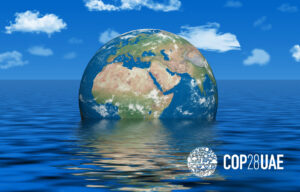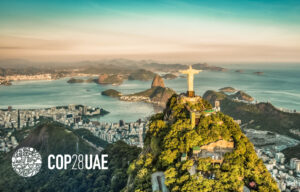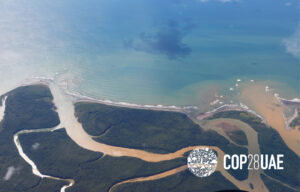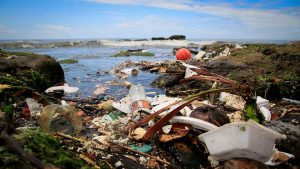World Ocean Day: Saving the ocean starts on land
This year’s World Oceans Day on 8 June has the theme Revitalization: Collective Action for the Ocean. What does this mean to you?
I think it is a very important theme, for two reasons. First of all, the ocean is in far greater peril than most people are aware. Humans have put unsustainable pressure on the world’s oceans and that creates enormous risks for us and for all life on Earth. We depend on healthy oceans for the air we breathe, the food we eat, and a stable global climate.
Second, saving the ocean starts on land. Most of the pollution that degrades the ocean comes from land, such as untreated wastewater, fertilizer run-off, industrial waste, and plastics. And this, unfortunately, is not given enough attention. We need to work collectively for the ocean where we trace impacts back to their source and focus on solutions there.
How does SIWI work to promote this?
At SIWI, we have long advocated for a source-to-sea approach to governance, which highlights how land, freshwater, coastal, and marine ecosystems are all connected. We have joined forces with a growing community of organizations in the multistakeholder initiative, the Action Platform for Source-to-Sea Management.
Source-to-sea thinking is increasingly seen as a solution to the problem of fragmented and ineffective governance that has led to many of the problems we now face. It brings together policymakers, the private sector, and local communities to co-create solutions. In the case of the ocean, everyone needs to take responsibility for the impact they are causing further downstream. We are very pleased to see that the approach is increasingly recognized in international documents and processes.
SIWI is the lead developer of the source-to-sea approach. We also build capacity at local to national levels and conduct projects where we address local development challenges by engaging stakeholders in the source-to-sea approach.
What happens next?
This is a very important year for the ocean. We see that more people are starting to understand that we are nearing a tipping point when it comes to ocean health. And as such, important new initiatives have been kicked off, like a global treaty on plastics and more focus on water pollution. From 27 June, I and other SIWI colleagues and many partners of the Action Platform for Source-to-Sea Management will attend the UN Ocean Conference in Lisbon. Through participation in interactive dialogues and a side event, we aim to raise awareness of the need for source-to-sea action for the ocean and to enlist more ocean actors to join the efforts of the Platform.
Looking beyond the UN Ocean Conference, in July, the High-Level Political Forum will review progress on Sustainable Development Goal 14, about life below water and SDG 15 about life on land – an ideal setting for promoting the source-to-sea approach to management. Thereafter, both the international conference on biodiversity COP 15 in September and the climate meeting COP 27 in November will be great opportunities for sharing our message of the need for holistic management from source to sea. SIWI and our partners will work actively at all these events to build commitment for source-to-sea action.
What is the outcome you would like to see?
Source-to-sea management can help us address many of society’s greatest development challenges, including climate change, water and food insecurity, marine pollution, and the degradation of nature. Whenever these are discussed, I want decision-makers to remember two perspectives that are crucial to the source-to-sea approach.
One is that land, freshwater, coasts, and the ocean are linked, so what happens in one place will inevitably have consequences elsewhere. We need to consider how the impacts of what we do will travel either downstream, upstream, or both and how we can make sure these impacts are positive. For example, the dams we build, the fertilizers we use in farming, and how wastewater is treated in a city can have, social, economic, or environmental consequences in other parts of the source-to-sea system. And when we restore natural ecosystems like wetlands and mangroves, such initiatives will also benefit people and nature across the system as a whole.
Viewed this way, it becomes clear that source-to-sea management must be inclusive, with many stakeholders working together. We need to break down the silos that fragment governance and result in single-minded decision-making. This is especially important for vulnerable communities and people living in poverty. Decisions must be made that will enhance their lives and this can only be done by including them in the decision-making. We need to replace today’s fragmented governance and siloed thinking with a new approach that recognizes how dependent we are on each other and on nature. And we need to make sure our actions are a positive force for change toward a more sustainable world, from source to sea.
Ruth Mathews is Senior Manager at SIWI and an expert in sustainable water management that enables people and nature to flourish. She is also the Coordinator of the Action Platform for Source-to-Sea Management hosted by SIWI, which brings together a broad range of organizations committed to holistic governance of land, freshwater, coasts, and the ocean.
We sat down with her for a chat ahead of United Nations World Oceans Day, celebrated on 8 June.









